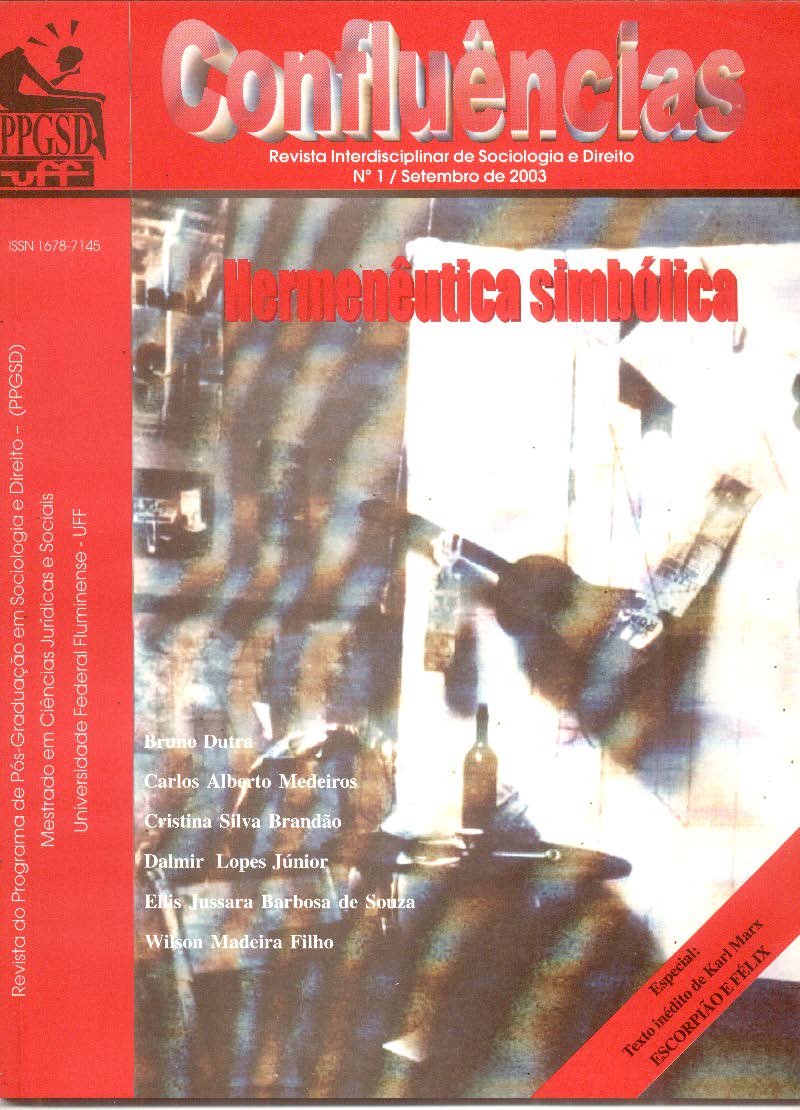O homem que queria existir
DOI:
https://doi.org/10.22409/conflu1i1.p33Abstract
Caetano Veloso colocou naquele filme dele, Cinema Falado, uma cena onde um rapaz na praia comenta, em alemão, trechos de Thomas Mann sobre o homossexualismo, numa espécie de referência implícita ao filme Morte em Veneza, de Visconti, sobre a obra de Mann. O filme de Caetano tinha um subtítulo que era algo como “um filme de ensaios”, ou coisa parecida, querendo, me parece, sugerir que o filme tinha uma pretensão acadêmica, como se fosse um livro de ensaios críticos, que ao invés de surgirem da maneira convencional, escrita, surgiam filmados, numa exploração das multiplicidades de linguagens de nossa agoridade agônica. Se poderia, nesse sentido, também se pensar, inversamente, em um roteiro ensaístico, fazendo de conta ser um filme toda uma dimensão conceituai tematizada largamente nos círculos acadêmicos. Se poderia ir ainda mais longe e realizar novas inversões, e fazer, por exemplo, as discussões sobre o Brasil ocorrerem em outro lugar, já que já foi dito que aqui é o lugar das “idéias fora do lugar”.Downloads
Download data is not yet available.
Downloads
Published
2003-09-12
How to Cite
Madeira Filho, W. (2003). O homem que queria existir. Confluências | Interdisciplinary Review of Sociology and Law, 1(1), 45-59. https://doi.org/10.22409/conflu1i1.p33
Issue
Section
Artigos
License
The authors hold the copyright, with first publication rights granted to the journal, being the work simultaneously licensed under the Creative Commons Attribution Licence, which allows the work to be shared with acknowledgement of authorship and first publication in this journal.
The authors have authorization to separately purchase additional contracts of non-exclusive distribution of the work's version published in this journal (e.g.:publication in institutional repositories or as a book chapter), with acknowledgment of authorship and first publication in this journal.
The authors have permission and are encouraged to publish and disseminate their work online (e.g.:in institutional repositories or on their personal page), at any point - either before or during the editorial process, since it may generate productive changes, as well as increase the impact and citation of the published work.







